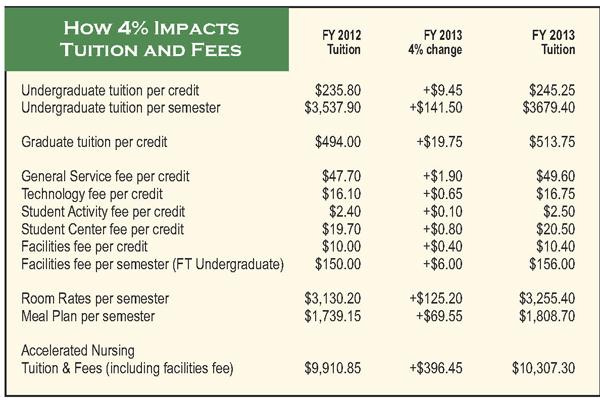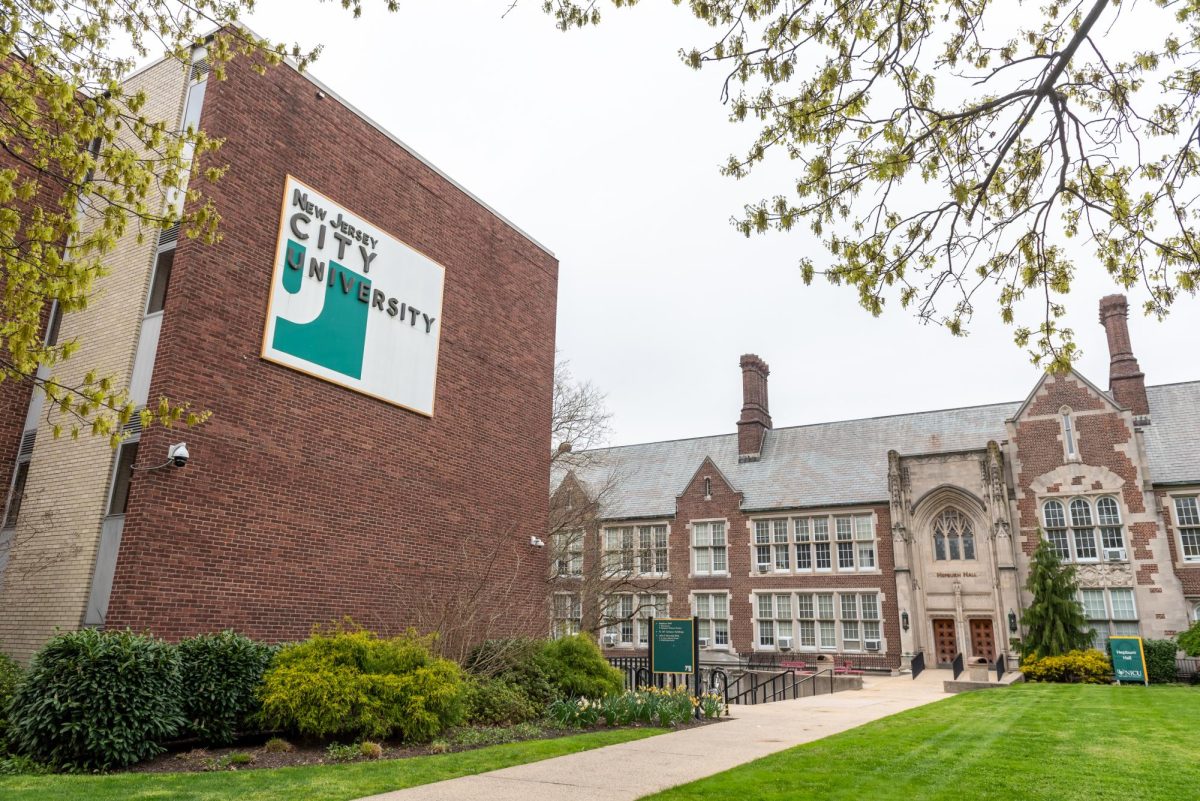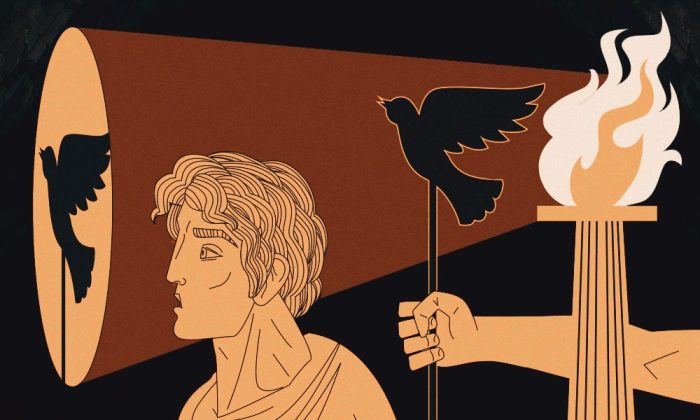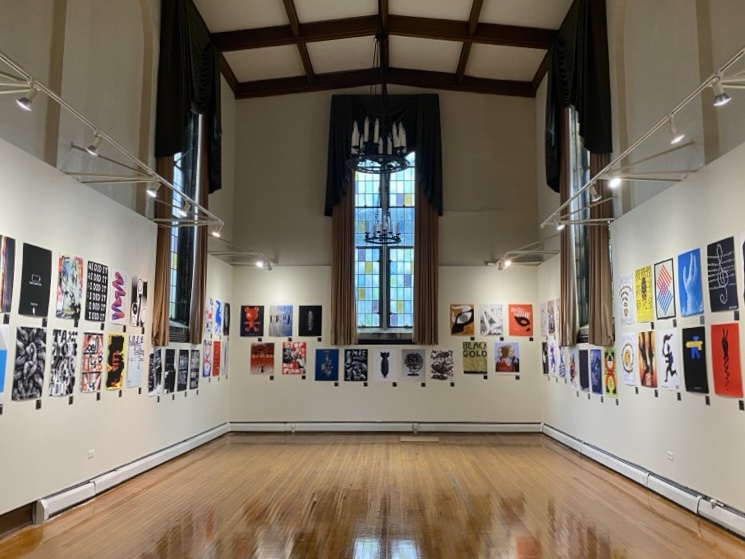Give retired university president Carlos Hernandez $100k severance package
By Monir Khilla and Katherine Guest —
During a New Jersey City University (NJCU) Board of Trustees (BOT) meeting on June 28, 2012, the members of the board collectively decided to increase students’ tuition and fees by four percent. NJCU students are not surprised by the matter, but they are not happy either.
“I’m starting my sixth year at NJCU and tuition has slowly but steadily increased. It’s not fair for students taking out loans because they have to take out more and more,” said Ivan Garcia, 24, English major from North Bergen.
For Garcia, the costs hit him hard.
“I’m a senior that’s reached my maximum loan limit and that four percent is money I’m going to have to make while going to school full-time, doing the education internship that’s part of my teaching certificate at NJCU, and working two part times,” said Garcia. “Actually, I feel like I have to call my financial aid advisor about my concerns.”
“The four percent increase may seem like a little, but we pay for tuition, it adds up. There are seniors reaching their maximum loan limit and will have to scramble and find ways of paying off both their tuition and eventually their loans,” said Garcia.
“It’s kind of sneaky putting the tuition increase at four percent. An actual price tag will hit the students harder,” said Emmanuel Alvarez, 28, sociology major from Union City.
 The actual dollar amount in-state NJCU students will pay extra per semester is $200.40. Other colleges in New Jersey also raised their tuition; Kean University increased their tuition by four percent. Montclair increased theirs by 3.9 percent.
The actual dollar amount in-state NJCU students will pay extra per semester is $200.40. Other colleges in New Jersey also raised their tuition; Kean University increased their tuition by four percent. Montclair increased theirs by 3.9 percent.
“I don’t think that the increase in tuition will turn into any noticeable improvement,” said Dan Guiducci, 22, Psychology from Jersey City.
Guiducci thinks that tuition money is badly allocated and spent.
“I’ve seen a lot of frivolous spending and money going to the wrong places at NJCU, but I hope that this time it is spent in ways that are beneficial to the students and teachers for the purpose of bettering our educational process and environment.”
“The board got tablets to ‘save money by saving paper.’ Other funds allocated to or held by SGO were used to send them on a trip to India, all of this while the Science building that holds some of the best teachers and brightest students in the school is outdated in disrepair.”
“I was actually not aware of the four percent tuition increase, but I’m not surprised, because the tuition had been growing steadily,” said Garcia.
A mass e-mail was sent to the campus community informing them of an April 23rd meeting where there would be a discussion taking place concerning the proposed increase as well as letting them know about the June meeting to increase tuition.
Jan Aguilos, 25, Media Arts/Political Science from Kinnelon, as well as other students, were at the April meeting.
“We spoke to Hernandez and he said we needed a four percent increase, anything lower and the school could lose money,” said Aguilos.
Former University President Carlos Hernandez submitted a recommendation to the board declaring that NJCU needed a tuition increase by four percent or more. Hernandez retired as NJCU’s president on July 1, 2012.
Ellen Wayman-Gordon, Vice President of Public information and Community relations, verified that “The tuition and fee schedule [is] based on recommendations submitted to the Board by the university administration.”
“The administration’s recommendation is based on an analysis of projected operational expenses that are deemed necessary for the delivery of a quality educational program for students,” said Wayman-Gordon.
Aguilos didn’t think the increase was valid.
“The school didn’t really provide a report that would validate the increase; they said they didn’t have one [report]. They should document their reasons for validating an increase.” said Aguilos.
Gerald Cameron, 21, Political Science major from Jersey City is the student representative on the BOT and defended their actions.
“You can’t particularly blame the BOT; they’re presented with expenditures of the University and have to find a way to work with the university when it comes to balancing the budget. The way they [the administration] presented it, you needed a 4 percent increase to maintain day to day operations,” Cameron said.
“One of the reasons they raised it was because of a low student presence,” said Aguilos.
The original vote to increase tuition was supposed to have been held on June 4th however, the BOT pushed the vote to June 28th.
Only one student, Alvert Hernandez, 19, Secondary Education from Union City, managed to make the meeting.
“I knew that the decision for tuition increase was going to be made. I was hoping more students would show up and back me up. I was disappointed when I didn’t see anyone else.”
Hernandez thinks a bigger student presence would have helped.
“We are the majority and students should run the school. Unfortunately, we didn’t show our presence [and] neither did we show our voice,” said Hernandez.
Hernandez does, however, think that “They [the BOT] made up their mind beforehand. There was no discussion besides me going up and them giving their response, everything else was voted upon unanimously.”
Alvert said that directly after the vote, the BOT voted to give outgoing president Carlos Hernandez a $100,000 severance package.
“The BOT puts the blame on us students for not confronting them on the matter, but they pick a day where students are less likely to attend,” said Alvarez.
“Considering the BOT works here, they should know the student population. The BOT knows the culture of Hudson County. They should think of a way to work around everyone’s schedule finding an actual way for everyone to attend these meetings,” said Alvarez.
“The BOT is aware of students’ financial hardships and sacrifices however, board members were unable to schedule their tuition meeting around the NJCU community’s calendar,” said Wayman-Gordon
“Say 400 students show up to the board meeting like what happened with Rutgers. The tuition might have only increased by 2.50 percent,” said Alvarez.
At Rutgers University, students were more aware of their BOT discussion concerning a tuition increase. Four hundred Rutgers students showed up and protested a proposed six percent tuition increase. Their Board of Trustees decided to instead raise tuition by only 2.5 percent.
Cameron thinks that, “The dialogue has to start the day school starts, students need to protest and demand that tuition increases to be flat-lined. Students need to be involved. If they’re going to be angry they need to go to their student leaders and be more involved with committees. They need to fight.”
Aguilos echoed the same message and directive, “Most NJCU students are working-class students and people of color. That’s more of an incentive for us to fight for lower tuition and fees.
It’s kind of ridiculous, the fact that it was raised four percent is more reason to not increase it next year. Hopefully zero percent, that’s something to fight for,” said Aguilos.














stanley • Sep 5, 2012 at 10:47 pm
hey how about we get more details about hernandez’s retirement package for the next issue, sounds like a good read. Matter of fact, how about we get the salaries for all the administrators! They are public employees aren’t they?